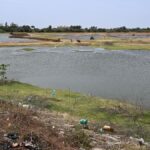
Institutional backing and support has been sought for traditional and farmer-bred paddy varities by marketing them through official channels.
| Photo Credit: M.A. Sriram
The government has been urged to promote traditional paddy varieties bred by local farmers, through the Raitha Samparka Kendra (RSK) and provide them institutional support.
Experts say traditional paddy varieties – some of which are bred by the farmers — deserve greater official backing through the RSKs which is not the case at present, though many of them are popular.
“There are farmers and individuals, many of them in Mysuru, H.D. Kote, and Periyapatna regions, who have been conserving traditional paddy varieties, and breeding new varieties since more than 20 years,” he said and pointed out that a majority of them are doing it out of passion, spending from their own pockets. ‘’The government must now step in to support and help scale up their work,” said Mr. Krishnaprasad, founder of Sahaja Samrudha which is advocating indigenous paddy conservation and promotion.
In the Mysuru region itself there are scores of seed conservators and rice breeders Ghani Khan, Bore Gowda, Srinivas, etc., and — individual farmers whose paddy collections are highly sought after across States. Yet, these community-level efforts have received little institutional backing so far, said Mr. Krishnaprasad.
Hence the government has been urged to release and promote farmer-bred indigenous varieties through RSKs – the agriculture extension centres — so that it ensure greater reach.
On the State government’s move to develop community seed banks for which ₹5 crore has been allotted, Mr. Krishnaprasad said it is imperative that seed conservators are roped in for the purpose. The success of the initiative would depend on involving those who have been quietly nurturing seed diversity for decades, he added.
“If the government is serious about promoting organic farming, it must also promote organic seeds. Traditional and desi varieties should be made accessible to farmers through official channels,” Mr. Krishnaprasad added.
Experts say that community-managed seed systems are playing a critical role in maintaining agricultural biodiversity and offering climate-resilient options to farmers. But unless financially supported and institutionally recognised, these systems may not sustain themselves in the long-run. The issue was also discussed in multiple farmers related events including the ‘Desi Seed Mela’ held in Mysuru recently.
There is a growing demand for inclusion of local groups, women’s collectives, and farmer conservators who are already active, as partners in the initiative.
Stakeholders have also outlined a multi-pronged approach to strengthen traditional seed systems and it includes strengthening community-managed seed systems to ensure access to diverse crop varieties; popularising traditional varieties among consumers and farmers through seed and food festivals, awareness campaigns, and educational materials; mapping and documenting indigenous varieties, including their nutritional profiling, through collaboration with research bodies and agricultural universities.
But it has also been argued by the stakeholders that a formal recognition of traditional and indigenous paddy varieties, evolving protocols for notification and mainstreaming these in formal seed systems, are essential.
Published – July 10, 2025 06:37 pm IST




















